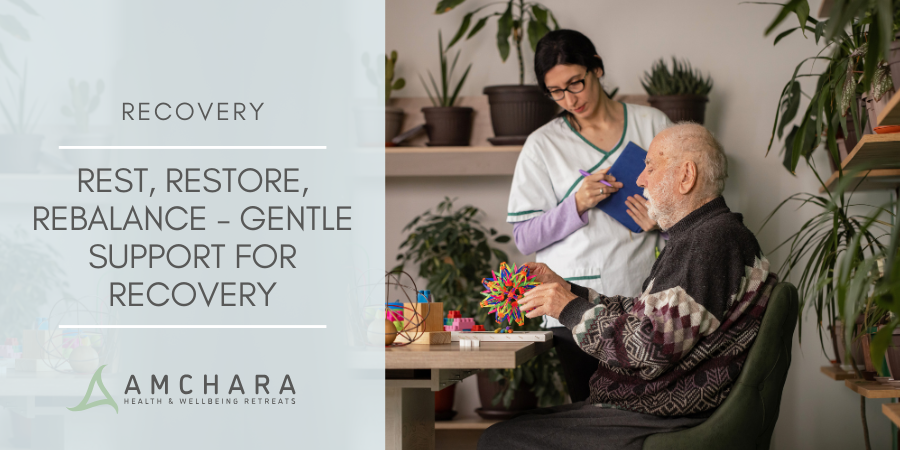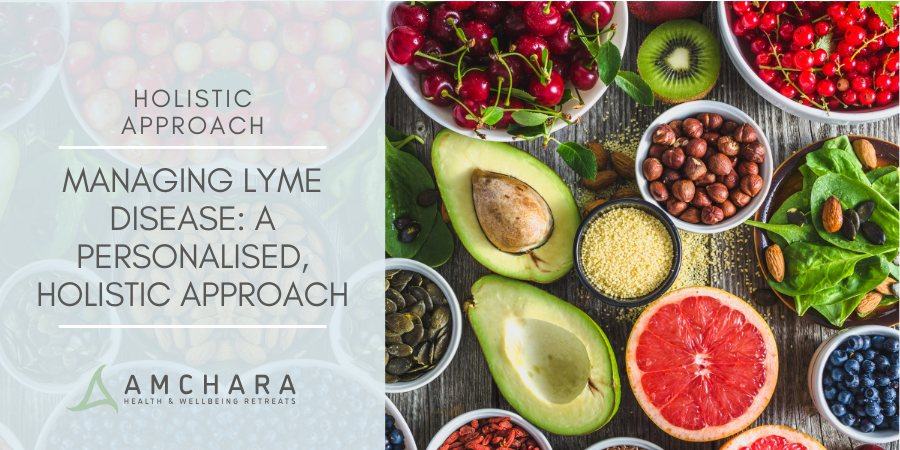Do you find it hard to be constantly jolly during the season of goodwill? You may find you lack time for all the competing demands, run short of money and come into conflict with loved ones.
Stress and depression can make this time of year challenging and adversely affect your health and wellbeing. In this article we’ll bring you strategies to help you remain grounded and positive throughout the festive season.
Why am I stressed and depressed?
Many factors can contribute to stress and low mood over the winter, including lack of sunlight, different food choices, increased alcohol intake, family relationship issues, money worries, competing demands on time, fear of missing out, loneliness or bereavement.
For some people, low mood can be serious, and if it’s connected with the winter months this could be a sign of Seasonal Affective Disorder (SAD). Symptoms typically worsen in the autumn and subside in the springtime and can include fatigue, poor concentration, excessive eating and social withdrawal.
#1. How to stress less
Chronic stress is closely linked with depression. But, it’s worth remembering that stress over the festive season is finite, unlike many other ongoing stressors – this means you can make plans ahead of this time to reduce the amount of stress you experience and its negative impact.
Remember stress is about how you respond to circumstances – it is not something that just happens to you. Remember you can therefore learn to control your stress.
Here are some of our top tips for coping with stress over the Christmas season:
- Experience gratitude. Consciously reflecting on your good fortune can boost your mood.
- Be generous. It’s important not to over-stretch yourself financially or with your time, but research has found performing an altruistic act makes us happier (1). Being generous doesn’t need to cost money – just holding a door open for someone is an act of generosity. If you do have some spare time, volunteering can provide you with companionship and lift your spirits. It can positively help your mood to focus on others and what you have, rather than what you lack. Don’t forget to be generous to yourself too.
- Own your emotions. If this time of the year brings back unhappy memories, accept it’s okay to express your feelings. There should be no compulsion or pressure to be happy just because it’s the festive season.
- Be realistic. We often put stress on ourselves by believing the festive season needs to be perfect, or comparable or better than last year. We all change with the passage of time, as do our families and loved ones. If this year turns out to be different, it doesn’t mean it can’t be a time to cherish and enjoy. For example, if loved ones can’t be with you at Christmas, take some time to be together on social media and make the most of the contact you can have.
- Stick to your budget. Money worries can be a significant source of stress at this time of the year. Don’t try to buy happiness with money. Instead of splurging on expensive gifts, why not donate to charity in someone’s name, or treat a loved one to an inexpensive day out later in the year?
- Learn to say no. If you say yes when you want to say no, you can end up feeling resentful and overwhelmed by responsibilities. Set your boundaries.
- Decide on your priorities. Focus on activities offering you positivity. Realise you can’t do and achieve everything.
- Enjoy everything in moderation. Trying to do too much over the festive season can leave you feeling exhausted and frazzled. At this time of the year we tend to break out of normal habits which can result in feeling out of control.
#2. Take a break and breathe
Make time for yourself. Even stopping and regrouping for as little as ten minutes when you’re feeling overwhelmed can reboot, calm and refresh you. Don’t feel guilty for taking time out – it is an important act of self-care.
Find an activity to reduce your stress and slow down your breathing. Focusing on breathing deeply is important, because when we are stressed we tend to breathe more shallowly, using the upper chest rather than the diaphragm. Shallow breathing is how you naturally breathe under stress. Visualise yourself breathing in calmness and breathing away stress.
Relax for a short while by having a cup of calming chamomile tea or a warm bath with Epsom salts, do some yoga poses or take a brisk walk outside. It can be challenging to let go for even a short while, but research shows it’s worth the effort. For a longer break, consider scheduling in a massage.
Find time to meditate – even as little as five minutes first thing in the morning can be a really positive start to your day. Focus on what you appreciate in life and clear your mind of negative thoughts.
Although ‘me-time’ is important, be careful not to spend too much time alone. If you’re feeling down, it can be tempting to avoid interacting with others, and social obligations can become a source of concern. We are naturally social animals and feeling part of a community can help boost your self-esteem.
#3. Get outside
At this time of the year it’s easy to spend days inside without seeing natural daylight. Exposure to light can boost your mood and help reset your circadian rhythm, ensuring you sleep better. Although when it’s cold a brisk walk outside may seem unappealing, simply going outside, even on a cloudy day, can help slow down an overactive mind and reconnect you to the present.
Research suggests light exposure before noon is especially beneficial. Try to choose somewhere in nature, even if it’s just a tree-lined road or your local park.
On the subject of sunlight, exposure to light wavelengths in the full colour spectrum can significantly reduce the symptoms of SAD. These are the wavelengths found in sunlight, as opposed to artificial light which only contains light at one end of the colour spectrum. If you can’t go outside, sit by a window during daylight hours and do some early spring cleaning to ensure your windows are clean, as dirty windows stop light getting in.
Consider investing in a full spectrum light box which emits light wavelengths similar to those in natural light. Don’t use your light box in the evening as you may feel too alert to sleep, but instead use it first thing in the morning, or at least before noon.
#4. Move more
Exercise releases endorphins, your feel good chemicals and stress relievers, naturally lifting your mood. It can seem hard to schedule in exercise with the many demands on your time at this time of the year, but your body will thank you for this investment.
If you’re stuck for Christmas present ideas, why not ask for a subscription to a gym or exercise class for Christmas?
#5. Sleep regularly
With late nights and disturbed sleep, outside noise or an overactive mind keeping you awake, it’s easy to miss out on quality sleep at this time of the year. Aim for a consistent bedtime as far as possible to help reset your sleep-wake cycle. The hours before midnight are when your sleep is especially restful and restorative.
Aim for at least seven hours sleep, preferably more, and resist the urge to do your online shopping before bed. The blue light emitted by screens and gadgets inhibits the release of your sleep hormone, melatonin.
Avoid caffeine, especially after midday. Your afternoon coffee may perk you up temporarily but the caffeine it contains will still be in your bloodstream come nightfall. Alcohol, although it may help you drop off to sleep, causes a deficit of deep sleep.
#6. Smart festive eating
We all know this time of year is associated with overeating, unhealthy food and excess alcohol.
Stress encourages a desire for comfort eating and you may find you tend to reach for sugary snacks, coffee and chocolate when you are stressed. Although they may make you feel better and give you energy in the short term, they steal energy and nutrients over the long term. The crash after a sugar high can leave you feeling worse than before.
There’s nothing wrong with having a treat during the festive season if it’s food you really enjoy, but if you feel guilty about your food choices or eat impulsively this can be create an extra source of stress. Try to always sit down to eat, relax and eat mindfully. If you know you’re going somewhere where there are likely to be unhealthy food options on offer, have a nourishing snack before you go such as a banana, which contains calming magnesium, alongside a handful of fresh unsalted nuts or seeds. By doing this you won’t be as tempted by salty snacks or sweet treats.
Saying no can seem difficult, particularly because food is often associated with giving and friendship, but if you do overeat or eat foods which don’t agree with you, don’t beat yourself up about it and aim to eat plenty of colourful plant-based foods the following day.
Make sure you eat a good range of foods containing omega-3 fatty acids, shown to have a positive effect on mood (2). Choose flax seeds, pumpkin seeds or walnuts, and eat oily fish such as salmon, sardines or mackerel.
Takeaway
Sometimes the festive season can seem overwhelming, but taking it one day at a time can help it become less daunting. Prioritise tasks as you go, live mindfully and enjoy the present without worrying about your to-do list or forthcoming social engagements.
Festive stress and blues, like the season, are temporary and with a little help from our tips above you can remain relaxed and uplifted, full of peace and joy and ready for the New Year ahead.
Gaining your insight helps us to help others.
We believe sharing knowledge and experience is an important part of achieving optimal health and would love to hear your views and experiences.
Did you find this article useful?
Please share your thoughts in the comments.
Read this next:




